
GOOD AGAINST THE NOVEMBER BLUES
Dear friends of the HfMT,
Here are a few pound-heavy recommendations to sweeten the barren time between golden October and cozy winter days.
With a symposium, a world premiere, a symphony concert, a music theater production, an excursion into intercultural dialogue with Japan, a reflection on AI and musical creativity, a multimedia evening, two big band evenings and much more, we paint a fairly typical picture of ourselves.
As a supporter at the HfMT, you also have the opportunity to get up close and personal with us and gain special insights into our work.
Let's go!
Yours sincerely - HfMT
THERE-BETWEEN
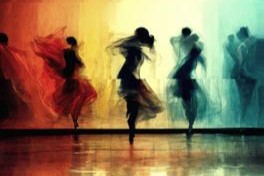
A moment mocks all dominion: of time, of meaning, of goals and intentions - and yet everything is fulfilled in the moment as soon as desire lets go of it. Moments bear witness to moments of supreme meaning and at the same time absolute meaninglessness: free of purpose or concept, open to all possibilities.
Lingering also interrupts the noise of reality. While the unconditional now lights up in the moment - fleeting and already past, infinity dwells in lingering. It enables contemplation, the contact of the self with the self and allows the difference to the other to shine through.
Prof. Susanne Naumann writes this inspiringly in her article in the current issue of ZWOELF as an introduction to the music education symposium Dazwischen, which takes place at the HfMT from November 7 to 9.
The event invites students and teachers from all disciplines of music education and aesthetic education to experience and reflect on the magic of musical moments.
Thanks to funding from the Claussen Simon Foundation, the events are free of charge. Registration is still possible until October 31 and also for individual events.
CHORALES LIKE PIROLGESANG
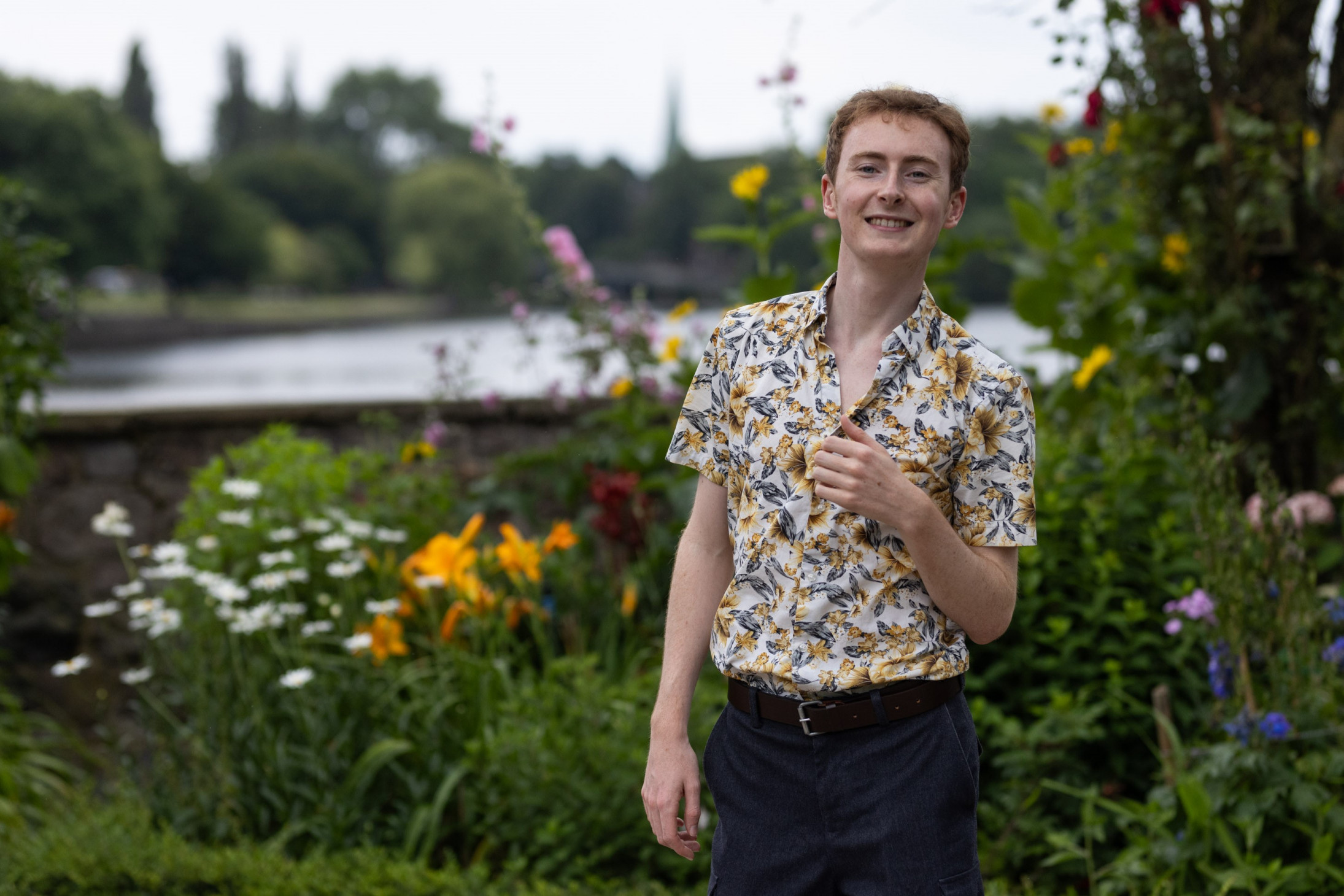
In the workshop concert with the Hamburg Symphony Orchestra on November 14, we have a world premiere in the program this time. Composing for an orchestra is always a special opportunity and a great challenge for composition students. Dominic Wills - a student in Prof. Fredrik Schwenk's class and this year's DAAD prizewinner - has taken on this challenge. The work is entitled infinite.
"The piece consists of two melodic sources that seem infinite to me, namely Gregorian chant and oriole singing. If you slow down oriole chant with software so that you experience it in our own human time scale, you hear a sound world that is surprisingly similar to the chorale," explains Dominic Wills.
The love of nature flows constantly through the compositions of the young composer from England: "Bird calls play a very important role. For me, they are melodic sources from which I can build new melodic material."
For Wills, the appeal of composing for orchestra lies above all in the coming together of so many people, moving parts and musical notes to create a single sound. "I really hope that my piece takes full advantage of this charm."
Another item on the concert program with the Hamburg Symphony Orchestra is the Rococo Variations for cello and orchestra by Peter I. Tchaikovsky. Prof. Alexey Stadler will be playing the solo part and will himself give an introductory lecture at 6 pm. The evening will be rounded off with Mozart's Symphony No. 39. Prof. Ulrich Windfuhr will be conducting.
SCHUBERT'S WINTER JOURNEY BY HANS ZENDER
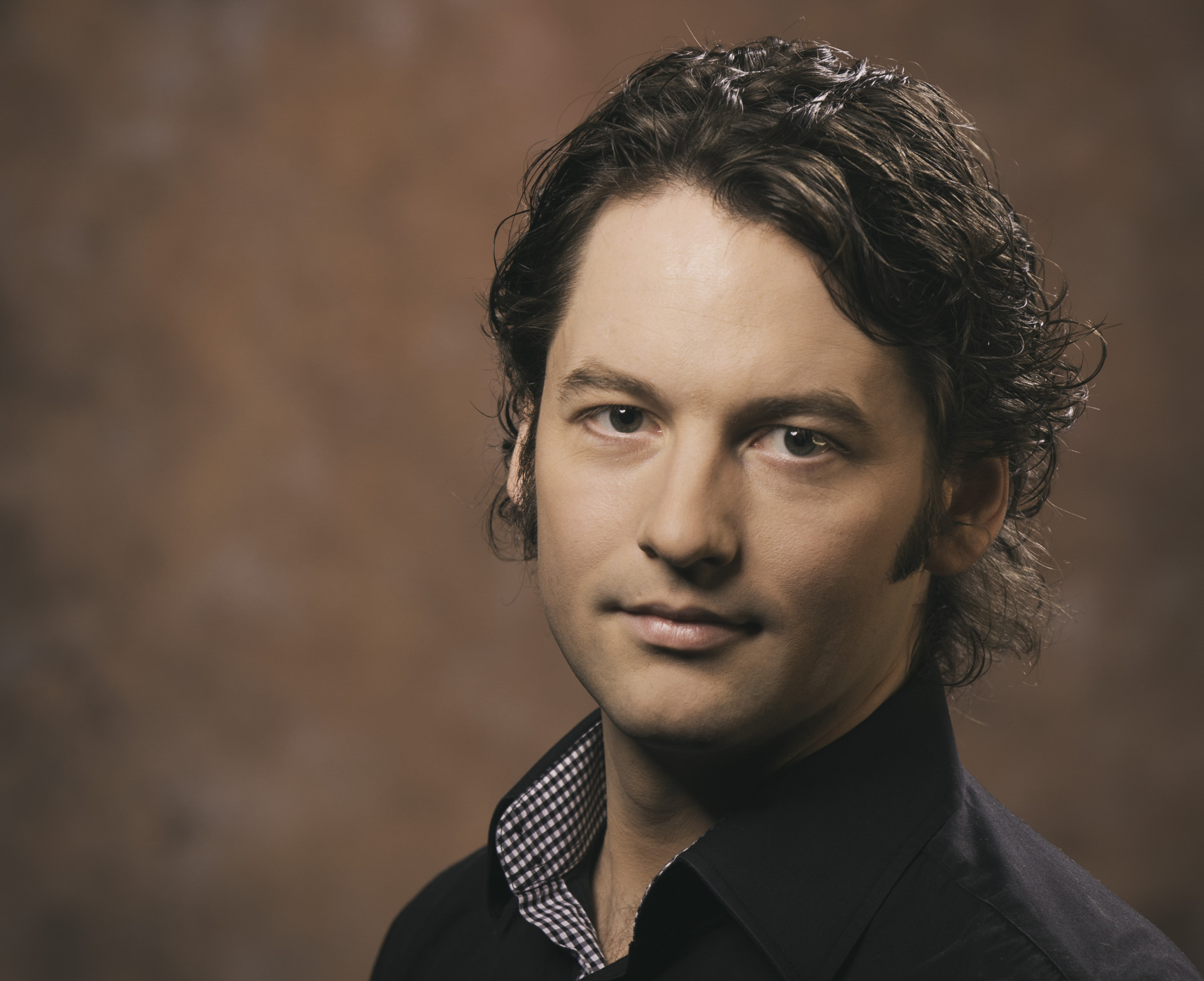
Timo Rößner - tenor, former student and now lecturer at the HfMT - will take on the vocal part in Schubert's Winterreise by Hans Zender in the concerts with the Ensemble 13/14 on November 19 and 20.
"I didn't know that this version existed," reveals Timo Rößner.
When Ulrich Windfuhr called me and asked me to take on this project, I was curious to hear what a "composed interpretation" might sound like. The first time I listened to it (actually already during the orchestral introduction to the first song "Gute Nacht"), I was thrilled to have the "footsteps in the snow" and the "winter landscape" so vividly before my eyes, to hear them.
But it is still Schubert. Hans Zender really has a good feel for Schubert's fine music and, in my opinion, "interpreted" the work exactly as he wrote it - without wanting to "falsify" or "alienate" it, at most "intensifying" an emotion or "emphasizing" an aspect.
Zender's piece is also lightly staged: The musicians move through the space according to a precisely notated choreography, adding another layer of interpretation to the music and text.
Timo Rößner and the Ensemble 13/14 under the direction of Ulrich Windfuhr on November 19 and 20
MULTI-STRINGED DIALOG WITH EAST ASIA
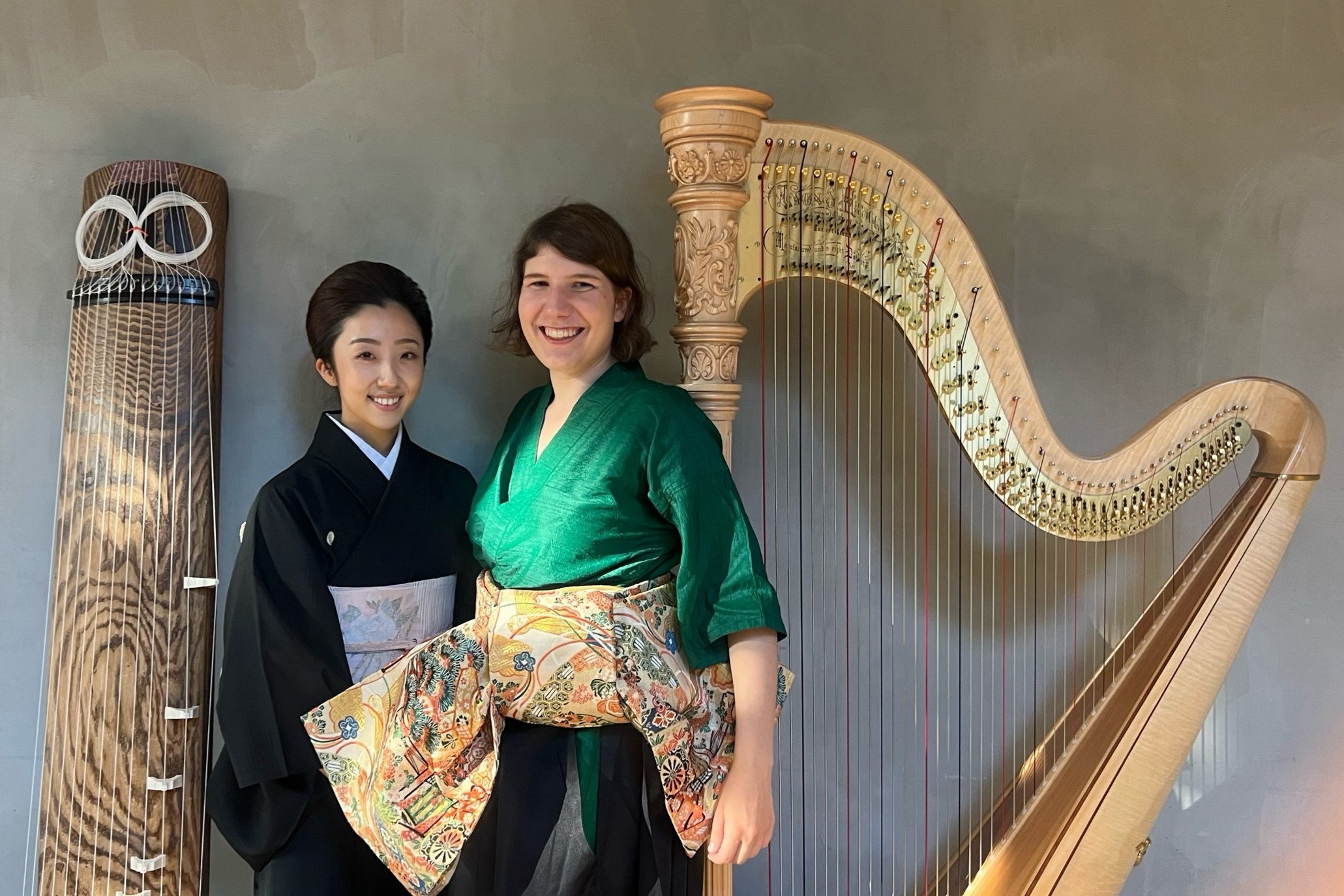
Harpist Sophie Steiner, who trained at the HfMT, has been on a research trip to Japan for six months, where she is investigating the connections between East Asian and European music from the perspective of her instrument.
To this end, she is recording harp-like instruments in East Asia, taking into account their construction, playing technique, repertoire and dramaturgy.
"The focus is not only on the question of how they can be revived and interpreted today. An artistic approach makes it possible to break new ground through empirical experimentation."
She is engaged in a constant dialog between musical traditions.
Samples of this artistic experimentation can be heard in two concerts in the Fanny Hensel Hall on November 23 and 24.
Koto and harp on November 23rd
String games of the world on November 24th
FELZWE
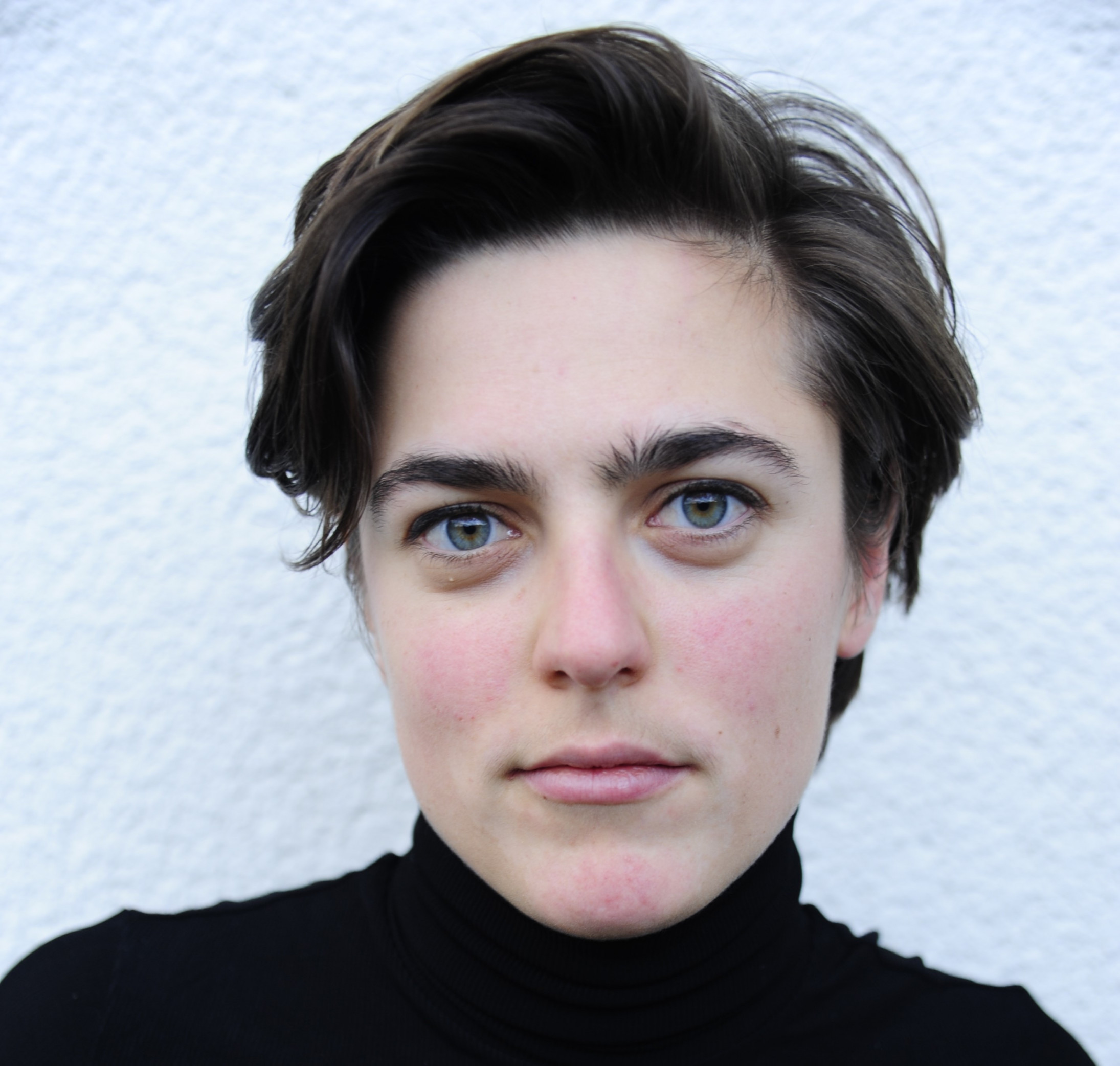
FELZWE?
Yes, that's how we felt too. What does that actually mean? We did some direct research to fill in the gaps in our knowledge. In vain. Director Lisa Pottstock explains: Felzwe works according to the coding principle of the French crook language Verlan, in which the two syllables of a word are swapped with each other. If we reverse the syllables (and add the lost 'i', which is hidden in the event motif), we discover the "doubt" and are directly in the theme.
In her final production FELZWE - Musiktheater zum barocken Ungehorsam, Lisa Pottstock and her team examine doubt in all its facets and shades. And asks:
"What is doubt?
In a social, philosophical context?
A feeling? A state? A mood? Anxiety? Uncertainty?
Are there different perceptions in different generations?"
A regulated space tolerates less doubt. If everything is possible, we are in a constant decision-making dilemma.
Baroque music is a good breeding ground for the exploration of doubt: musical structure and architecture are unambiguous, the space is regulated. Within the practiced regularities, however, there are playful possibilities to break the rules.
Lisa Pottstock works with her team in an open and equal dialog. At the beginning there is a kind of musical map and the dramatic text by Hannes Becker. What it will become in the end is still a fantasy that needs to be tested now. Supporters can take a look at an interim status (see supporter offers below).
FELZWE - music theater on baroque disobedience, premiere on November 29th
WHAT ELSE IS GOING ON
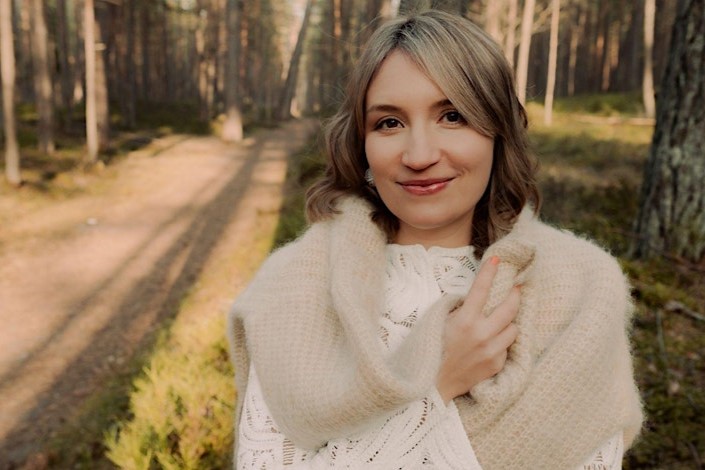
The new zwoelf is here. It has a new look and we like it very much. In addition to reports from our various departments, this time the authors take an in-depth look at the topic of foreigners and formulate their plea against exclusion.
Order your free copy of zwoelf here.
The Gerhard Trede Prize for Arrangement and Composition will be awarded for the second time this year. The six nominated compositions from very different categories - including classical, jazz and contemporary music - will be performed by the HfMT's Large Ensemble at the award ceremony. A jury will decide on the new prizewinner on the same evening. It promises to be a varied evening. Gerhard Trede Award ceremony on November 6 in the JazzHall.
The Hamburg Talks for Culture and Media are entering a new round. We welcome Prof. Daniel Kühnel - Director and Chairman of the Hamburg Symphony Orchestra - to discuss the question "Why does art have to be political if this is the task of parliaments and the media?"
Hamburg Talks for Culture and Media on November 7
At the start of a series of events marking the 20th anniversary of the Master Multimedia course, the participants will embark on a journey through soundscapes in which the past, present and future and the boundaries between the digital and real worlds become blurred.
the future is present on November 8 at the Forum
Among the many high-caliber artists performing at the JazzHall, this time our attention turns to Latvian composer, arranger, bandleader, singer and storyteller Monta Tupčijenko. Monta writes harmonically dense polyphonic music with influences from folk, classical and jazz.
Monta Tupčijenko and HfMT Bigband on November 13 and 14 at the JazzHall
As always, there is more to discover in addition to our selected recommendations. As usual, you can find the full program in our calendar of events
NOVEMBER OFFERS FOR SUPPORTERS
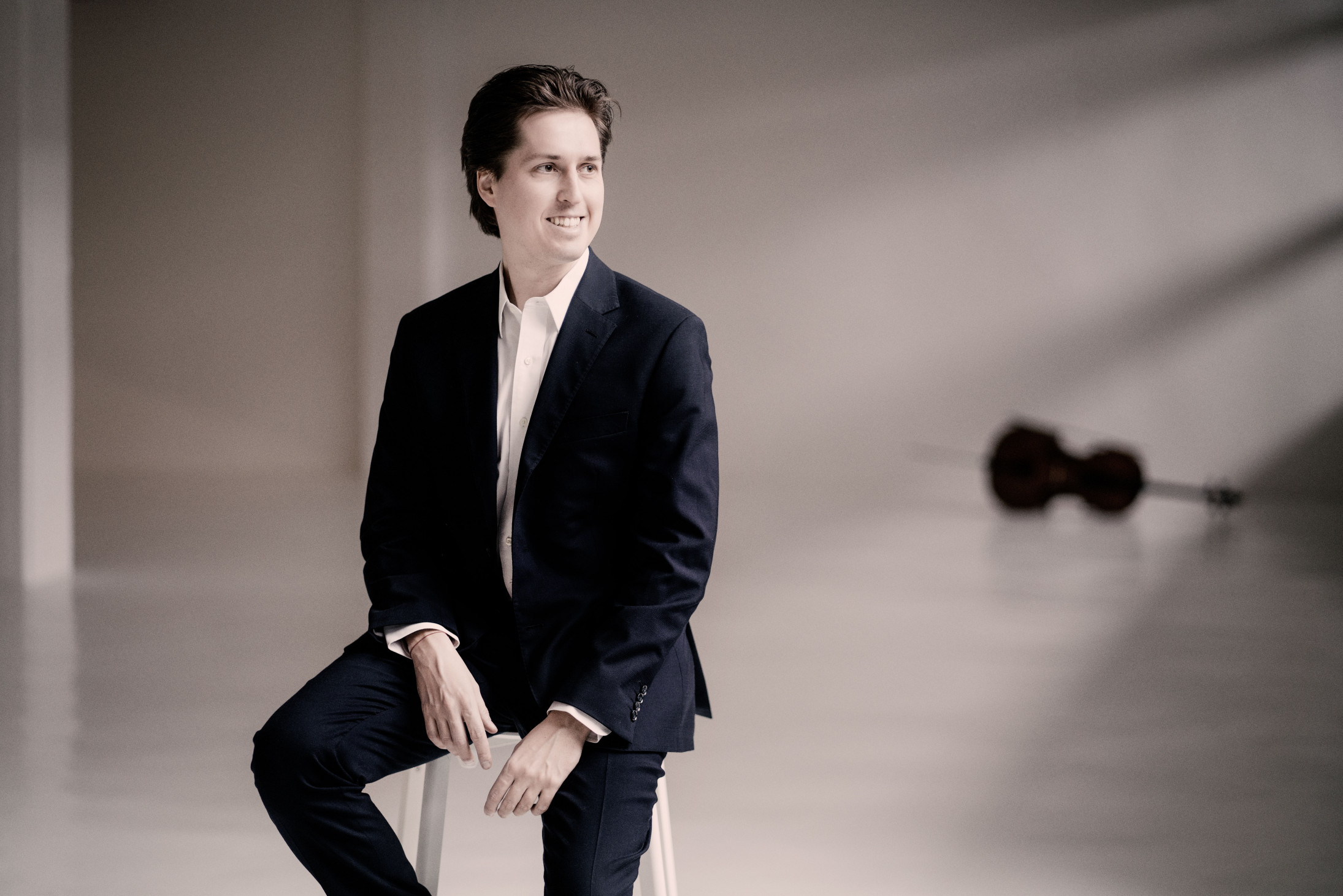
We find a passionate music mediator with a great sense for encounters in Alexey Stadler, professor of cello and soloist at the workshop concert on November 14.
Experience a rehearsal of Tchaikovsky's Rococo Variations on November 13 at noon. Afterwards, there will be an opportunity to talk about it over coffee in the foyer.
The charismatic director Lisa Pottstock and her team invite you to an exclusive "showing" of the musical theater production FELZWE followed by an artist talk on the afternoon of November 23.
Finally, we would like to secure you the opportunity to take part in the coveted "Hamburg Talks for Culture and Media". Places always fill up quickly. Please register by November 4 to take part in the discussion on November 7.
If you are already a supporter, please register for the offers at hochschulstiftung.supporter@hfmt-hamburg.de
If you would like to become a supporter and thus also have access to the offers, please continue here.
+ + +
Welcome to our events!
Your HfMT
FOLGEN SIE UNS!



